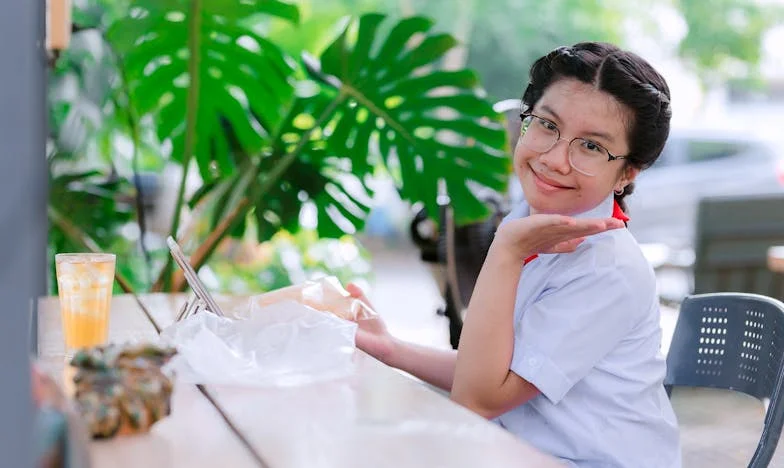The Day My Brother Disappeared: A Story of Loss and Unanswered Questions
“Where is he? Where’s my brother?” I screamed at the officer standing in our living room, my voice raw, trembling, and desperate. My mom, sitting on the edge of the couch, looked like she’d shrunk in her own skin, her hands shaking as she clutched Jake’s favorite hoodie. Dad hovered by the window, jaw clenched tight, eyes refusing to meet anyone’s. The blue and red lights outside painted everything in horror-movie colors.
“Ma’am, we’re doing everything we can,” the officer said, his face a mask of rehearsed sympathy. But I could tell he was lying. I could see it in the way he avoided my stare, in the way he shuffled his feet and pressed his lips together. I felt rage bloom in my chest, hot and wild. Jake was gone, taken from the parking lot of his own apartment building, and no one wanted to tell us why.
My brother and I used to talk about everything—baseball, video games, our parents’ weird habits. He was the funniest person I knew, always quick with a joke to lighten the mood. After Dad lost his job at the factory, Jake became the glue that held us together. He’d pick up shifts at the gas station, help Mom with groceries, and, god, he’d always make me laugh when I felt like crying.
But that night, everything changed. The call came just before midnight. “There’s been an incident involving your son,” the voice said. By the time we got to the hospital, Jake was gone. The doctors said he’d died of ‘complications’ after a struggle with police. Complications. Like he was a math problem they couldn’t solve.
At first, I refused to believe it. I kept calling his phone, hoping he’d answer and tell me it was just a misunderstanding. His voicemail was so normal—Hey, it’s Jake, leave a message—but the normalcy made it worse. At the funeral, I almost laughed when Pastor Miller said, “Jake is in a better place.” How could anywhere be better than here, with us?
The days blurred together into a sickening routine: police reports, meetings with lawyers, whispers in the grocery store. Some neighbors looked at us with pity; others with suspicion. “He must have been doing something wrong,” I heard Mrs. Ellison say as I walked past her porch. I wanted to scream at her—Jake was good, he didn’t deserve this. But I kept walking, fists clenched.
Dad started drinking more. He’d sit in the garage for hours, sometimes yelling, sometimes sobbing. Mom stopped cooking, stopped talking. The house filled with Jake’s absence. His room stayed untouched, like a shrine. I’d sneak in at night, lie on his bed, and breathe in the scent of his cologne, begging for a sign. Just one more conversation. One more joke.
I tried to find out what happened. The police wouldn’t release the body cam footage. Their report was full of holes—”Jake resisted arrest,” “he was agitated.” But Jake had anxiety. He hated loud noises, sudden confrontations. I knew he would’ve panicked, but he would never hurt anyone. I hired a lawyer, posted on social media, even called local news stations. Some people cared. Most moved on.
One night, about a month after Jake’s death, I found Mom sobbing at the kitchen table. She clutched a letter Jake had written her—just a silly thank-you note for making his favorite lasagna. “I miss the way he smiled, Em,” she whispered. “He hasn’t smiled in this house for so long.”
I realized then that Jake wasn’t the only thing we’d lost. We’d lost our sense of safety, our trust in the people who were supposed to protect us. We’d lost the version of ourselves that believed the world was fair.
But I refused to let his memory fade into another statistic. I organized a vigil at the park where Jake used to play. Over a hundred people came, holding candles and sharing stories. Some told me they’d lost loved ones too, and I saw the same haunted look in their eyes. We hugged, we cried, we demanded justice.
Yet even as the months passed, the truth stayed out of reach. The police closed the case, citing “lack of evidence.” Our lawyer said it was hopeless. Dad wanted to move away, start over. Mom just wanted to be left alone. But I couldn’t move on. Not without answers.
One evening, I sat on Jake’s bed and spoke out loud, as if he could hear me. “I’m sorry, Jake. I should have protected you. I’ll keep fighting, I promise.”
Sometimes I wonder if the fight is worth it. If anyone really cares. But then I remember Jake’s laugh, the way he’d say, “Don’t let the bastards get you down, Em.” And I know I have to keep going. For him. For us. For every family who’s been told to move on when justice hasn’t been served.
Do you think the truth always finds its way out in the end? Or do some stories just disappear, like my brother did, into the silence no one wants to face?
